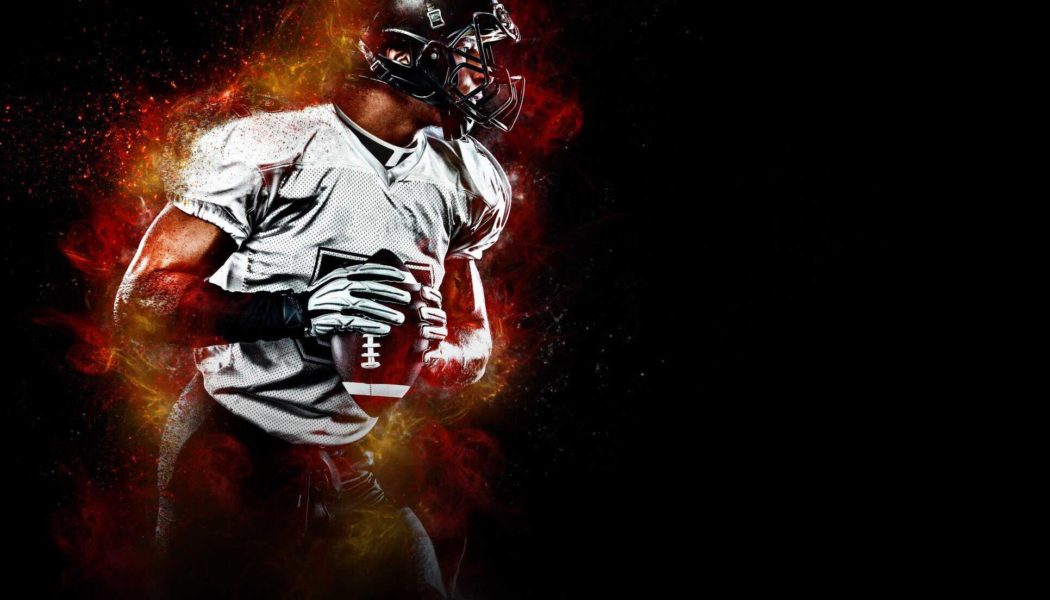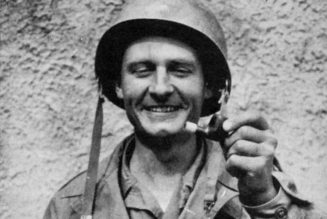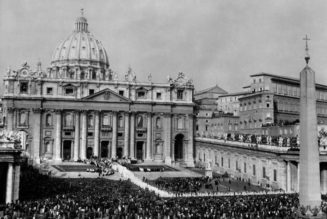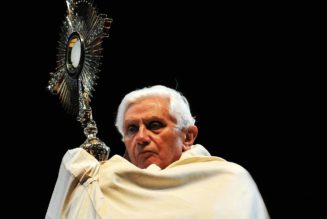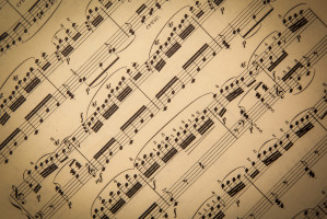
As the NFL draft approaches at the end of April, speculation runs rampant among fans about which players their teams will take and which areas of their rosters have the greatest needs. As a lifelong fan of American Football, I have spent countless hours poring over articles, highlight tape and opinion pieces, trying to predict what my team might do with their picks.
In full disclosure, I realize that this is a disordered attachment bordering on idolatry, so I offer this piece as an atonement for all of those hours of lost mental and emotional energy and fleeting glory. I present here an analogy that has helped me to understand and articulate the situation the Catholic Church finds herself in in this apostolic age.
The life of the Church is a lot like a football game. We have an offense and a defense (we’ll have to get into special teams in another issue). In further detail, in each of these phases of the game, we have specific positions, and those positions each have a function within the system we are running. It’s time for us to evaluate our roster and create a draft board based on positions of need. So, what are the equivalent positions in the Catholic Church?
Offense
As a caveat to this section, I have not found the Church to be a prolific offensive team in recent history. We resemble my beloved Chicago Bears far more than the Kansas City Chiefs (I could take this much further, but I’ll spare you). Our offense has been conservative in its play calling, and I have a hunch a few of us are playing out of position. Nonetheless, let’s get into it!
Quarterback – Pastors
The quarterback position in the Catholic Church is her pastors. This means the pastors of the local parish and the bishops. They are the leaders of the offense and the play callers. You might push back and say that they are actually the coaches. I’ll push back and say the Holy Spirit is the coach and he calls the plays. The pastor needs to listen to the play call from the Holy Spirit and communicate it to the offense. The quarterback/pastor is also in charge of ensuring everyone is in the correct position within the formation and that they will run the play as it is (divinely) designed.
While it is widely acknowledged that quarterback is the most important position in all of sports, it is very rare that they are the only ones advancing the football in any given play. Their primary job is to distribute the football to the other players. Pastors have a unique authority and responsibility to give the football to the other players within the offense. A quarterback who tucks and runs all the time is generally not a winner and eventually gets hurt. We see this often with our pastors who do not trust their teammates and/or feel like they need to do everything themselves. A quarterback is always better with better players around him, and at the same time, a great quarterback elevates the play of the rest of the offense.
Running back – Sacramental life of the Church
Everyone knows that the run game is the heart of an offense. Strong rushing attacks help teams make deep runs in the playoffs and they make the rest of the offense function for a few key reasons. First, running the football takes a physical toll on defenses. It wears them down and puts constant pressure on them. Second, it keeps defenders from assuming it’s a pass. If they know the offense is passing, pass rushers put more pressure on the quarterback and linebackers, and corners drop back into position to cover receivers.
– Advertisement –
The sacraments are the running game of the Catholic Church. Our pastors need to consistently feed the running game. It doesn’t need to be flashy, but we do need to commit to it. Running backs come in all different shapes and sizes, and I liken that to different approaches to the liturgy. The key to the running game is consistency and a good offensive line.
Offensive line – The Academy
The role of the offensive is two-fold: Protect the quarterback in the passing game and open holes in the running game. The academy provides this function in the Catholic Church. By academy, I mean the state of Catholic scholarship, particularly as it informs and impacts the challenging issues the Church deals with today. With this position, we can see how offensive systems and styles fit into our analogy.
For example, if our offensive strategy is ground and pound, we need strong offensive linemen who can “dispense justice,” as Broncos legend Mark Schlereth would say, and overpower the defensive line. This would mean our theologians would need to stay rooted in the fundamentals of the faith and provide consistent clarity on the moral teachings of the Church. If that were the case, the Church could rely on a steady ground game (sacraments) to control the clock, steadily move the football downfield, and score regularly. If the academy is inconsistent, not rooted in the fundamentals, and frankly, not overpowering the defense, our sacramental running game will not gain as many yards, and our pastors will be running for their lives.
Full back – Religious Orders
Another key component of an offense, especially one dedicated to running the football, is the fullback position. Fullbacks are versatile weapons who do a lot of the dirty work in an offense. Many times, they are undervalued and underpaid in the real world, but when your offense is without one, you feel the loss. Religious Orders fill this position.
Depending on the need, full backs lead block for the running backs, act as another pass blocker for quarterbacks, and on occasion tote the rock themselves and even catch a few passes out of the backfield. Religious Orders, being varied in charism, provide many functions for the Church’s offense. Sometimes they bring clarity which increases the fruitfulness of the sacraments. Other times, they battle the culture and provide our pastors with more time to deliver the football to a receiver. They have also been known in short yardage situations to take matters into their own hands and rebuild western civilization.
Wide Receivers – Apostolates
Now we get into the flashy positions. Widely considered prima donnas, wide receivers help make football fun and exciting by regularly bringing big play potential. Similarly, apostolates, while having a flare for the dramatic which is reflected in their marketing collateral, certainly help the Church attack the defense and make plays downfield.
Wide receivers are evaluated on a number of levels: route running, athleticism, catching and awareness. When we compare that to the apostolates, they need very similar skills. In route running, apostolates need to know their role and reliably be where their quarterback expects them to be. Athleticism would be akin to the dynamism of the apostolate. Naturally, some will be simpler and more consistent while others may have more star power, reach and potential for impact. Catching is simple; it’s the main responsibility of the receiver in the pass game. For apostolates, the question is simple: can they do what they claim to do when the ball is thrown their way, or is it all for show?
Finally, awareness is the skill that really separates the greats at wide receiver. Can they find the open hole in the defense? Do they know when to switch to the hot route on a blitz? For the apostolates, this skill is built through relationship with the Church’s pastors. If the apostolate is tuned into the game plan, understands the defense, and has the trust of the pastors, a lot of passes are going to come their way and they will have a huge impact on the mission of the Church. The last thing to mention about wide receivers is that none of them last long if they do not help in the running game. If they are too consumed with their pass-catching abilities to block, they generally get cut. For apostolates, they serve the Church greatly when they support her sacramental life.
Tight Ends – Educational Institutions
In a lot of ways, the tight end position plays a huge role in determining the type of offense a team can run. Traditionally, tight ends are primarily blockers but in recent decades they have become more and more utilized in the passing game. The type of tight end a team utilizes typically gives you a huge clue to their offensive identity. For this reason, the tight end position is equivalent to the educational institutions in the Church. Educational institutions differ from the academy. To distinguish from the aforementioned academy, educational institutions refer to the formation programs which turn out professionals for ministries.
Depending on the needs of the church, the educational institutions may focus on producing strong teachers and pastor-types which stabilize the offense and serve the sacramental life of the Church. If the offense needs some more juice, they may need to form risk-taking evangelists, prophets and apostles, who push the bounds of the peripheries. The point is the type of people coming out of our educational institutions will greatly influence the style of offense we are trying to run. Many times, our pastors may recognize that they need to change their offensive philosophy, but they don’t have Travis Kelce or Gronkowski — they have a traditional blocking tight end. Unfortunately, no matter how hard they work, they aren’t likely to transform these players into Shannon Sharpe.
Defense
Although it feels like the Church has been playing defense a lot lately, part of that is due to its “meat and potatoes” style offense and porous offensive line. What I don’t have time or space to get into here is the other team the Church is facing. For our purposes, the Church has three clear enemies that seem to collaborate as a team: The World, the Flesh, and the Devil. Our defense is built to defend against these attacks.
Defensive Line – The Family
We begin this side of the ball by looking at the most important part of every defense, the defensive line. Defensive linemen are generally broken into two positions: defensive tackles and defensive ends. Defensive tackles typically fill gaps in the offensive line and try to stop the run. Defensive ends are more responsible for setting the edge and rushing the passer.
The defensive line is the family. St. Pope John Paul II once said, “As the family goes, so goes the nation, and so goes the whole world in which we live.” Many coaches would say something similar about defensive lines. When the life of the family is centered on Jesus Christ and the family has made their home his home, the Church’s defense is nearly impenetrable against the enemy’s ground game. By procreating and raising children in the faith, the family rushes the passer and puts constant pressure on the enemy. Remember, the enemy’s strength and bandwidth are limited, and the more saints he has to deal with, the more difficult it is to execute all the plans for their damnation.
One of the other key responsibilities of the defensive tackles are that they keep offensive linemen from reaching the linebackers. Strong families make the linebackers’ jobs easier by keeping these blockers out of their faces, allowing them to clearly see the field, make adjustments and when the time comes, make tackles.
Linebackers – Parishes
The linebackers in the Church’s defense are the parishes. Linebackers are at the heart of the defense and most defenses are designed for linebackers to make the majority of the tackles. They typically also call the defense, meaning they are responsible for communicating the defensive play and ensuring that the defenders are all lined up correctly and in position.
As linebackers, our parishes are stable communities of the faithful, animated by the Eucharist, where sins are forgiven in the Sacrament of Reconciliation. The Church is designed for parishes to eliminate threats from the enemy because of the strength of the sacraments and the communion of the faithful.
Linebackers are a very versatile position and depending on the defensive scheme, the roles of linebackers and linemen can blend. This is fitting as the parish at times depends on its stability and at other times blitzes and puts pressure on the on the enemy through missionary initiatives. This versatility is reflected in Pope Francis’ writings: “The parish is not an outdated institution; precisely because it possesses great flexibility, it can assume quite different contours depending on the openness and missionary creativity of the pastor and the community.”
Cornerbacks – Think Tanks
Every year in the NFL draft, corners are coveted by every team, and no one questions their value. For example, when the Broncos selected Patrick Surtain II, everyone applauded the choice. Even though they had needs at quarterback, even though Micah Parsons went a few picks later, everyone knows the Broncos got a great player at a premium position. This speaks to the values of cornerbacks, who in this analogy are the think tanks of the Church.
Corners cover receivers whether it is in man or zone coverage. They read the quarterback’s eyes and anticipate throws, but generally are responsible for a single threat in either an opposing player or a zone in the defense. Likewise, think tanks are often dedicated to a singular problem plaguing society or the Church. They raise awareness of the threat and aim to stop the atrocity and contain its damage. Think tanks are usually way ahead of the rest of the Church on particular threats. They were the people writing about the problems in Ukraine a decade before the war or warning of the evils of gender ideology throughout the early 2000s.
Safeties – Prophets
The final position we’ll be covering in this analogy is the safety position. Safeties are the last line of our defense. If a rusher gets past our line and linebackers, safeties need to be able to make tackles. If a ball is thrown deep, safeties are responsible for never allowing anyone to get behind them. Safeties also have a unique vantage point of the entire defense, which gives them perspective of the quarterback and all his options. It allows them to communicate adjustments to the defensive secondary and linebackers.
Prophets fulfill the safety position in the Church. They are many times the last line of defense. When the kingdom of Israel had been corrupted, the prophet Elijah remained to call the nation back to faith. When the papacy was in complete confusion, St. Catherine of Siena brought clarity and restored the Pope to Rome. Because their revelation comes from the Holy Spirit, they can see more than the think tanks and are generally more aware of the bigger plan of the opposing offense. While their primary responsibility is forecasting what comes and ensuring everyone is in the right position to defend the play, they also have the ability to make the tackles themselves, focus on a particular threat in man coverage, or double team receivers that pose a strong threat.
So who does the Church draft?
So, in light of these positions, which are the greatest needs of the Church right now? Putting aside for a moment that there is no draft for the Church, let’s remind ourselves of a few general rules of drafting.
Rule #1: Quarterback is the most important position in all of sports. Our pastors will always hold an incredibly influential role in the productivity of the Church’s offense and the leadership of the whole team. If you need one, you probably draft one if you have a high enough pick.
Rule #2: There are premium positions. Corners, pass rushers and left tackles along the offensive line will be key pieces to add to your team. The biggest position of need today could very well be our pass rushers, which are our families raising their children to live for Jesus. They say a team can never have enough pass rushers, I don’t think we can ever have enough faithful families.
Rule #3: You never really go wrong by choosing the best player available. If we’re honest, our roster has some bright spots, but we face a ferocious opponent and could stand to get better at every position. When this is the state of your team, sometimes it’s best to take the best player available.
In light of rule number three, let us pray that the Lord sends laborers for his harvest and with them quarterbacks that read defenses, linemen that blow opponents off the ball, shut-down corners, and ballhawk safeties. In the meantime, Lord, keep us from the idolatry of professional sports and help us to enjoy them as you see fit. May we score many points for the Kingdom of Heaven, and may Jesus be glorified in all that we do!
